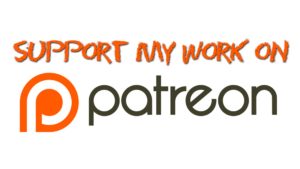
Let’s talk about THE question in a teacher’s life … the baleful, “When am I going to use this in my real life?”
Yeah, that one.
The honest answer is probably, never… and they know it. Why else ask, if not to subvert and diminish your role and purpose? They don’t really want an answer. What they want ... is just to watch you squirm, or to hear what B.S. you might spit out. Either way, your class is now off the tracks!
However, it is a valid question, in its essence. What is our purpose here? It is a fair question, and one that needs to be answered. And don’t be one of those people that thinks all content is applicable to daily life … it is NOT, nor should it be. The purpose of education is not to train kids for every possible situation in life, but to equip them with an education so they can adapt to any possible situation. The purpose of education is the development of the mind. Sometimes we learn tricky things for the same reason some accountants lift heavy weights at the gym.
So let’s talk about how to change the answer to THE question. Let’s turn it on its head. Let’s answer the question: When am I going to use this in my real life, it in a way that swings the pendulum back in your direction. Let’s answer the question in a way that stops the division and animosity that fosters the question in the first place.
See, the reality is, when a kid asks that question, they’re doing you a favor. They’re providing you with insight that perhaps you’re serving the wrong this. And if you’re not, whatever purpose you serve is not apparent to that student!
Let’s back up and take a larger scope view of the situation. Especially in today’s educational climate, teachers stay in the classroom to be of service to students. That’s it. Teachers are blamed for all of the woes of society, for the failings of education, called lazy, and everybody seems to know what they’d do to fix it, if they were a teacher!
That sentiment, why teachers stay in the classroom, is the gateway to changing the answer to THE question. Teachers are only in the classroom for the benefit of the students. And surely, a teacher wouldn’t take on the sacrifices they do to stay teaching only to waste the time of their students, right?
Well … no, but kind of yes, too.
Let’s talk about job pressures … failing percentages in your classes, average scores on “high stakes tests.” Those are big deals! The test results are used to evaluate schools and teachers. Administrators can be rewarded or fired on the basis of such things!
After all, good test results must be the sign of a great school. Bad test results, well, that is really the teacher’s fault! Yet, if a teacher holds a standard aligned with test results, the class failing rate will be too high, unacceptable, and a sign of bad teaching. There will be unpleasant parent meetings; counselors, and administrators asking what’s being done to help the student, as if the student is hapless, a victim of the inevitable.
What am I doing to help this student? I don’t know … showing up to work every day with lesson plans, a warm welcome and words of encouragement? Oh, and I tell him to pick up his pencil fourteen times an hour, that’s a start, right?
Through either threat or blarney, bean-counters and pencil-pushers outside the classroom press hard to ensure that the teacher is performing due diligence to achieve high test grades. Parents hover, students object, and through it all teachers are led to one inevitable observation: this is not why I teach.
Do those test scores really matter for students? Sure, maybe ACT or SAT, AP, IGCSE or IB tests matter. But those are the culmination of years of work. Does it matter, to the student, if they pass their local state’s Common Core exam? Not one bit.
In my real life, everybody will be impressed that I got a 3 on my Common Core State Test in English.
The purpose of an education is not to be able to pass a test. The purpose of education is the development of the mind. An educated person should be adaptable, thoughtful, able to communicate and appreciate various points of view other than their own. An educated person should have perseverance and confidence, creativity and curiosity about the world around them.
A person that is educated should have an enriched life as a byproduct of their education.
When am I going to use this in my real life?
Well, that depends on what you mean by this.
Are you, as an educator, teaching this to help kids pass a test, or get a good grade in your class? Are you teaching this to help them to know how to do their homework? If so, there’s no judgement or blame. Sometimes you have to make concessions just to get through the day. We want kids to be successful. The problem is, what are we using as markers of success?
But what if you could make this align with why you come back every year?
If you teach students about factoring polynomials so they can complete a worksheet, and maybe pass a quiz, your this is not powerful. That is not why you teach. Why make it what you teach?
The trick is to devise ways to teach kids how to think, to encourage creative problem solving and develop communication … to give them an education, while they learn how to factor a polynomial.
Personally, I never want a student to say to me, “Mr. Brown, you’re the only reason I got through math class.” That’s too low of a standard. That is exactly the this that makes THE question so damning to our efforts. I don’t show up every day so my students can pass a quiz or test, or get a minimal passing grade in math class.
I show up every day to provide a challenge to my students, so they can test themselves and be better tomorrow than they were today. And by better, I don’t mean greater proficiency at rationalizing the denominator. I mean of better mind.
To me, the best compliment a student can give a teacher is, “You taught me how to learn.” In learning to learn, all of the pieces of an education are there. To know how to learn you must be a problem solver, a critical thinker, be reflective, confident, and resourceful. A student that knows how to learn is prepared for an unknown future.
Ask yourself: By teaching this, what’s being learned? Are you just rehashing the same old lessons, just giving the same information the students could get on Khan Academy? Are you asking them questions that can easily be answered by PhotoMath? Are you printing another worksheet off of KutaSoft?
Challenge yourself to raise the bar. Forget the bean-counters. They’ll be happy when they see the results because when a student that knows how to learn takes a silly test, they do well! Not only that, they’ll stand out when compared with students who were taught the content of the course only.
Unfortunately, if you’ve been dragged to the point where you realize, this is not why I got into teaching, and it consumes your day, you cannot answer THE student’s question honestly without using the word never.
You’re unlikely to find much guidance in the education industry that will change the this in THE question. The industry sells books and professional development designed to get students to pass the test. Their livelihood is generated from keeping the this we don’t want in THE question.
It is on us, educators dealing with students daily, to change the this.
The next time a student asks THE question … ask yourself, why? Why did they ask? Which this am I serving, the one designed for test scores, or the one educating students?



